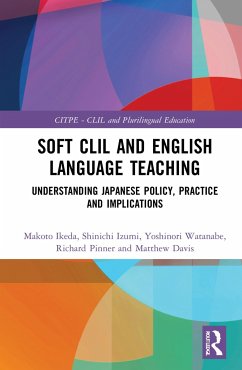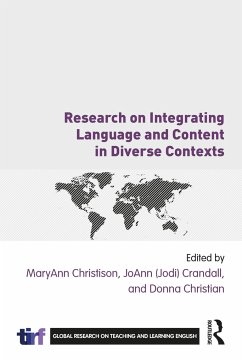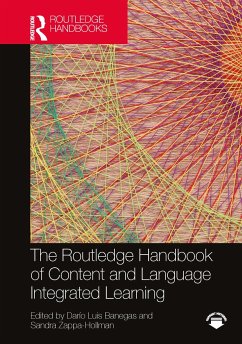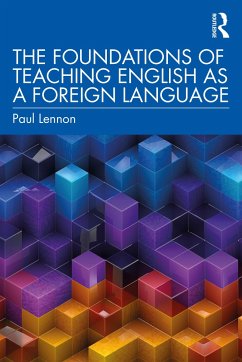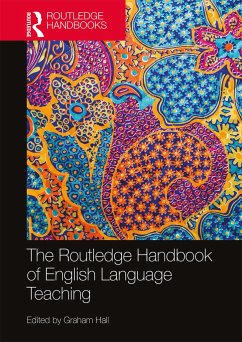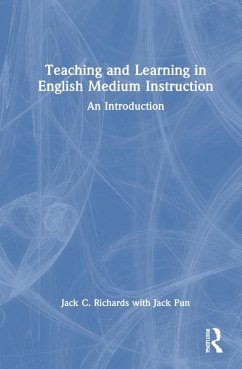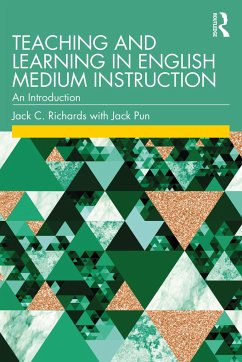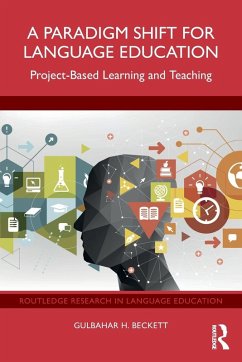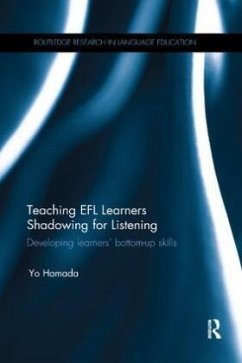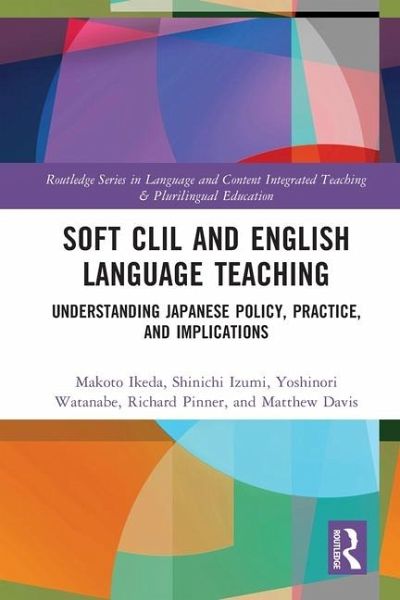
Soft CLIL and English Language Teaching
Understanding Japanese Policy, Practice and Implications
Versandkostenfrei!
Versandfertig in 6-10 Tagen
43,99 €
inkl. MwSt.
Weitere Ausgaben:

PAYBACK Punkte
22 °P sammeln!
Content and Language Integrated Learning (CLIL) is a transformative and powerful approach to language education and has had a significant impact on educational pedagogy in recent years. Despite burgeoning literature on the efficacy and implementation of CLIL, there remains a gap between CLIL and English Language Teaching (ELT). Many practitioners wonder how they can 'do CLIL' if their main classes are focused on English as a Foreign Language (EFL). This volume addresses these concerns by examining the experiences of various CLIL practitioners in the EFL context of Japan.Chapters outline the CL...
Content and Language Integrated Learning (CLIL) is a transformative and powerful approach to language education and has had a significant impact on educational pedagogy in recent years. Despite burgeoning literature on the efficacy and implementation of CLIL, there remains a gap between CLIL and English Language Teaching (ELT). Many practitioners wonder how they can 'do CLIL' if their main classes are focused on English as a Foreign Language (EFL). This volume addresses these concerns by examining the experiences of various CLIL practitioners in the EFL context of Japan.
Chapters outline the CLIL methodology, the differences in 'hard CLIL' (subject led) and 'soft CLIL' (language-oriented) before focusing on the EFL interpretations of soft-CLIL. Although the distinction of hard CLIL and soft CLIL has been mentioned in several publications, this is the first book-length exploration of this issue, featuring chapters examining expectations, challenges, material support, implementation, and even motivation in CLIL classrooms. All of this culminates in a review of the potential and future of CLIL in EFL contexts, paving the way for more widespread and well informed implementation of CLIL all over the world.
Chapters outline the CLIL methodology, the differences in 'hard CLIL' (subject led) and 'soft CLIL' (language-oriented) before focusing on the EFL interpretations of soft-CLIL. Although the distinction of hard CLIL and soft CLIL has been mentioned in several publications, this is the first book-length exploration of this issue, featuring chapters examining expectations, challenges, material support, implementation, and even motivation in CLIL classrooms. All of this culminates in a review of the potential and future of CLIL in EFL contexts, paving the way for more widespread and well informed implementation of CLIL all over the world.





